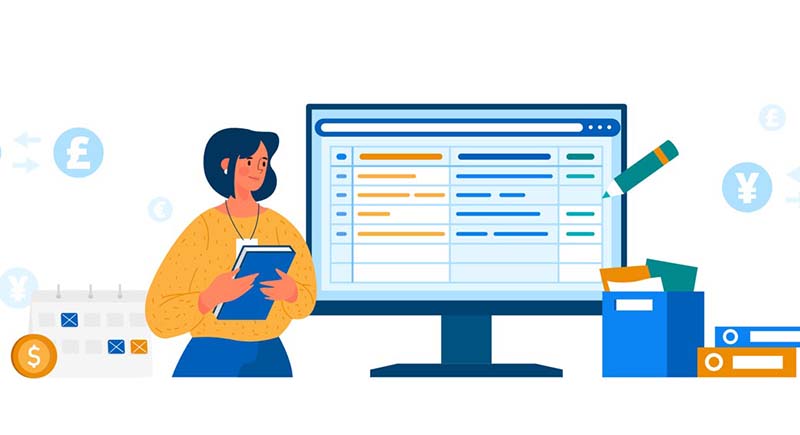Of all the administrative practices, real estate bookkeeping may be considered the most important. There are several state regulations to abide by and a multitude of transactions that happen on a day-to-day basis. These are some of the factors that make real estate bookkeeping somewhat difficult, tedious, and time-consuming.
This is why it is important that you prioritize organization when handling your real estate accounting books. Speaking of accounting books, this guide will discuss one of the primary accounting books any business, not just real estate business, should have – the general ledger.
What is a General Ledger?
A general ledger, sometimes called a GL, is the master accounting document of your business. Basically, the general ledger gives a summary of your business’s financial information.
It provides a comprehensive record of all the financial transactions your business has made. It helps you, as a property manager, to view the bigger picture of your business’ finances. In fact, it is an important document in real estate finance. It shows you your assets, liabilities, revenues, expenses, profits, and losses.
Historically, the general ledger was an actual ledger. It was typically a big book where you recorded your business’ financial information by hand. But today, a general ledger may not be a physical book as a lot of businesses are resorting to accounting software for building their general ledgers.
Why Do You Need a General Ledger?
Every property manager needs a general ledger for their real estate businesses.
Here are some cogent reasons:
To Get Financial Statements
You make financial statements based on a compilation of information from the general ledger. These financial statements make it easy to monitor the cash flow and financial performance of your real estate business.
As a player in the real estate sector, there are three major types of financial statements you will find useful. They are the income statement, the cash flow statement, and the balance sheet.
These financial statements are very important to achieving success in the real estate business. They help you evaluate your liquidity, profitability, and the overall financial health of your real estate business.
For Filing Taxes
IRS guide on expense definition is cumbersome and you need to have various expense categories to justify the tax deductibility of the items.
The general ledger significantly supports the tax element of your business. To file your tax, you or your real estate accountant need to make references to the general ledger.
The general ledger with different categorization of GL accounts helps you sort those expenses based on tax code and rules.
Easy Way to View All Your Business Transactions
A general ledger is where all journal entries are made. The term “journal entry” originates from the fact that bookkeeping used to be done originally in journals by hand. It refers to the record of a specific financial transaction.
The general ledger contains all the journal entries you have ever made. It makes it easier to view all your transactions instead of having to comb through several bank statements, invoices, and credit statements when you need to look for one transaction.
If you run a small real estate business, you may have to wear more than one hat. This may cause you to sometimes fall behind on keeping your general ledger up to date. To avoid the dangers that this may constitute to the financial health of your business, you should consider hiring a real estate accountant.
Helps Prevent Fraud
Since all your financial records are in one place, it becomes very easy to monitor your finances. You can easily and immediately spot unusual financial transactions that may have been recorded.
This keeps you on top of your finances allowing you to easily prevent any occurrence of fraud. In addition, to avoid potential cases of fraud, ensure that your authorization is needed for every transaction.
Standard Financial Transactions in a General Ledger
A general ledger contains a record of all financial transactions. These transactions include:
- Bank deposits and payments
- Journal entries
- Accruals and deferrals
- Contributions made by the owner
- Taxes paid to both federal and state agencies
These are the major financial transactions that can reflect in your general ledger.
Paper or Digital General Ledger?
In recent times, the term “bookkeeping” only refers to this accounting practice as you do not necessarily have to keep records of your financial transactions in printed ledgers.
Digital ledgers, on the other hand, have taken over the accounting world. One particular feature that makes digital ledgers preferable is the ease of locating transactions when compared to traditional paper ledgers.
For example, you want to review transactions from August 8, 2019. If you use paper ledgers, you will have to sift through a lot of clutter to get to the ledger for August and then the page for August 8.
However, if you store your records digitally, you can just enter a search query for August 8 and you will get the records for that date. In addition, online ledgers are safe from physical damage and can be accessed easily for years, which is great for record keeping.
Conclusion
The general ledger is arguably the most important financial document to your business. Understanding how to use it effectively can be deterring initially, but this does not have to be the case.
As you use the general ledger, you will understand better how powerful it is and the tremendous benefits it provides for your business.

 Investment Analysis
Investment Analysis